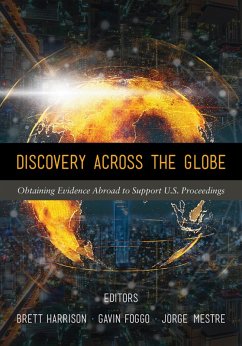Civil litigation in the United States is becoming an increasingly international practice, requiring litigants and courts to apply foreign and international law in order to resolve domestic cases. Discovery is one of the principal areas of civil litigation that requires collaboration across national lines and efficacy of court orders beyond jurisdictional boundaries. Although central to the practice of civil litigation in the United States, discovery is virtually unknown in most civil law jurisdictions, which creates a problem for obtaining necessary evidence from these countries.
This book considers the procedures for obtaining evidence in the United States through the Federal Rules of Civil Procedure and the Hague Evidence Convention. The book then describes, in successive chapters organized by jurisdiction, the laws that enable foreign litigants to obtain evidence in the respective countries. Each chapter discusses the controlling law on foreign discovery, including the type of evidence obtainable, confidentiality and privilege, alternative dispute resolution, and costs.
This book considers the procedures for obtaining evidence in the United States through the Federal Rules of Civil Procedure and the Hague Evidence Convention. The book then describes, in successive chapters organized by jurisdiction, the laws that enable foreign litigants to obtain evidence in the respective countries. Each chapter discusses the controlling law on foreign discovery, including the type of evidence obtainable, confidentiality and privilege, alternative dispute resolution, and costs.
Dieser Download kann aus rechtlichen Gründen nur mit Rechnungsadresse in A, D ausgeliefert werden.


